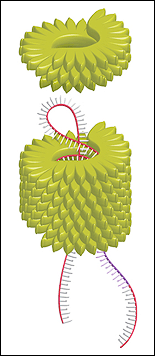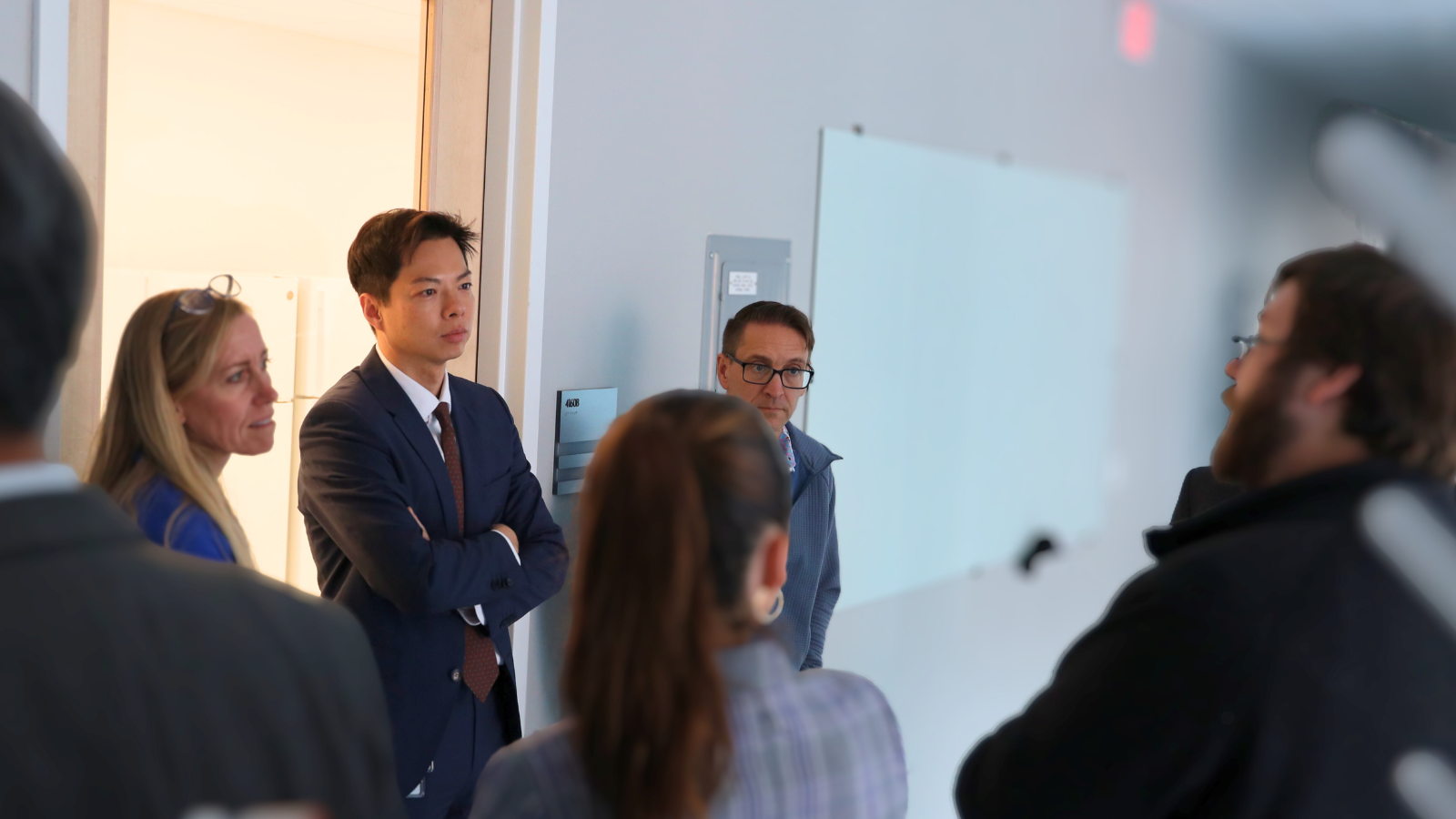News Story
Bentley, Hung, Culver Gene Therapy Research Covered By Wired

siRNA customized to fight disease is incorporated into the protein sheath of the tobacco mosaic virus (TMV).
The article by Aaron Rowe describes how the scientists have managed to hollow out the tobacco mosaic virus (TMV), which damages tobacco plants but is harmless to humans, and use it as a container to deliver small interfering RNA (siRNA) to diseased cells. The work has major implications for the use of gene therapy, rather than drugs, to treat cancer or viral infections.
Instead of TMV's own genetic material, specially engineered, single-strand siRNA is "wound" into an empty TMV protein sheath (a sort of capsule) as it self-assembles. The sheath protects the fragile siRNA while doing what nature designed it to do: get into cells where it can release its genetic material. In this case, what TMV delivers is not a typical viral illness, but a genetic message that instructs cells to turn on their defenses. Using this treatment technique, the patient's own body becomes capable of fighting illness more effectively, with minimal side effects.
Wired author Rowe was recently interviewed about the research on NPR's "Chemistry News Roundup." The research has also been covered by The Diamondback, the University of Maryland's independent daily student newspaper.
For More Information:
Read the Wired article: "Tobacco Could Hold the Key to Revolutionary Gene Therapy" »
Visit the Bentley Group web site »
Visit Professor Culver's homepage »
Related Stories:
The Diamondback Online: "Univ. researchers stunt cell growth with virus" »
Listen to Aaron Rowe discuss this research on NPR's Chemistry News Roundup »
Published September 8, 2008









